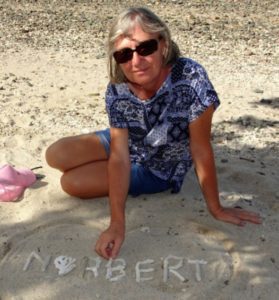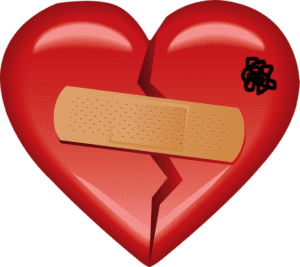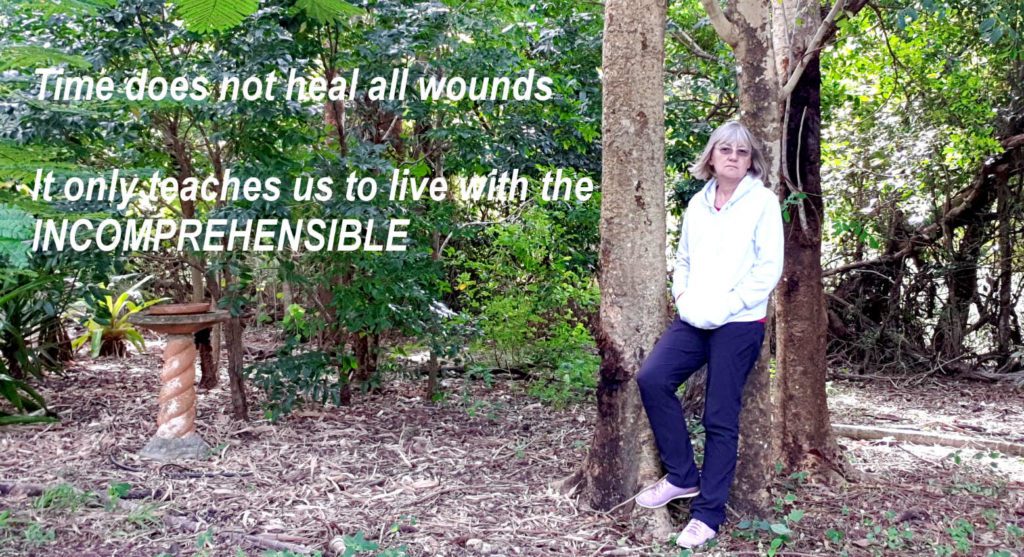Previous post
Now reading
Stop Telling Me About the 5 Stages of Grief
Next post


Denial…anger….depression….bargaining…acceptance. That’s the infamous 5 stages of grief. Since my husband died I’ve been on my own grief journey. So where am I up to? Obviously past denial, but have I reached acceptance yet? Is there anything after acceptance or is that the end of the road? Well I’m going to bust this whole thing apart and hopefully everyone will stop talking about it to grieving people. I mean…seriously…..we have enough to deal with.

The 5 stages of grief model was developed by Swiss-American doctor and psychiatrist Elisabeth Kubler-Ross more than 30 years ago. She was observing people who were dying of a terminal illness and wrote a book called On Death and Dying where she described these 5 stages specifically in the context of coming to terms with mortality ie when you have been told you have a terminal illness.
Unfortunately, these “stages of grief,” have become the gauge by which ALL grief is measured and they have become ubiquitous in our culture.
“The Five Stages of Grief…are no longer used by thanatologists (people who study death, dying and bereavement) as a model of grief…. In fact, the Five Stages were not intended to be a treatment plan for the grieving person, but are Dr. Kubler-Ross’s observations of the emotional experience of the dying person.”
Enough With The Five Stages of Grief: And Why Dr. Kubler-Ross Would Agree
I read an anecdotal report written by a colleague of Dr. Kubler-Ross who went to visit her just before she died (of natural causes). Apparently the esteemed Dr. Kubler-Ross snorted when she asked conversationally, “Is everyone still using the [!@#$%] stages model?”
Dr. Kubler-Ross was very well aware that she had been completely misunderstood but it wasn’t really her fault. Many people who read the book failed to read the introduction and therefore took the staged approach completely out of context. People love a ready-made recipe!
Everyone’s experience can be so completely different, and if there is one piece of advice that I particularly value from ‘back at the beginning’, it’s that “the only right way of grieving is your way“. Time does make a difference, things get better and life becomes easier, but it’s not a nice, neat sequence of stages.

Seeing as models, memes and illustrations are a good way of explaining something complex, I’ve developed my own diagram explaining how time changes the effects of grief. See the circles in the diagram below? (Yes, I drew them….artistic talent hey? 😎 )

The circles are your life and feelings. The first circle is straight after a loved one dies (me, back in the early days) and the big, black scary ball of grief completely consumes every part of your body…every moment of your day and every thought. It can be so all-consuming that you can’t think of anything else and you might even start to believe that you are going insane.

As time goes by (and you make the monumental effort to move forward), there is some space in the circle for the new things that are beginning to fill your days (for me this was painting, walking, writing (blogging) and travelling. On the outside it looks like you’re starting to heal but…oh…that’s a long way from the truth because the grief is still there. It’s just as big, black and ugly but it’s being squished (yes, that’s my technical term) to make space in the circle (your life) for other things. It has not lessened – just compressed.

After a longer space of time (the duration of which is completely different for everyone) the ‘life space’ gets bigger and bigger until that ugly and scary ball of grief is squished even further into a corner of your life. It does NOT go away though. Ever. It can be 2 or 20 years later when you hear a particular song, or something else triggers a memory, that the grief hits you with the same force as it did in the beginning…clutches at your gut and leaves your teary. Then you take a deep breath and get back to your new life.
People talk about ‘closure’ but don’t get me started on that one. [rolls her eyes skyward] Grief never actually goes away and time doesn’t heal it…but isn’t that a good thing?

The word ‘closure’ has the connotation of leaving something behind, whereas if you are grieving for a loved one, you will love and miss that person for the rest of your life. Everyday life will progress forward as it always has and you will go with it, but tucked into a corner of your heart is that little black mass of grief which you’ve come to know well. It’s not quite so scary anymore because it has become such a familiar part of your life, so you can take it out occasionally and shed some tears because you still love them.
“The wounds of widowhood are very slow to heal. They leave deep scars. Although most women discovered or developed ways of coping with their futures, making them interesting, fun, rich and rewarding, they admit that the scars remain.”
When Husbands Die by Shirley Reeser McNally

I freely admit that years ago, I used to be one of those ‘experts’ who spouted on about the 5 stages of grief. Knowing about this famous model made me feel smart and informed, and apparently I wasn’t alone.
“So annealed into pop culture are the five stages of grief…that they are regularly referenced without explication. There appears to be no evidence, however, that most people most of the time go through most of the stages in this or any other order.”
The 5 Fallacies of Grief

It would be so convenient to have a neat little model which shows where you are heading next on your grief journey, but sadly life isn’t quite so orderly and real life is a whole lot messier. So…. now that you know the truth about the 5 stages of grief I will climb down off my soapbox. 😃
What are your thoughts about my little rave? Have I convinced you? Or perhaps you have a different experience and you disagree? Please share your opinions in the Comment box below. I soooo love to hear from readers (and I don’t mind if you disagree with me).
Marlene is an Australian widow who has written about all the good, bad and ugly stuff that happened after her husband Norbert died tragically. Marlene responds to all comments.
I totally agree with you Marlene that it’s different for everyone and every circumstance. I was pointed to these stages after Bek’s death and honestly couldn’t relate to ANY of them.
Denial…no, except maybe confusion on hearing the news – ‘is this real or is it a very sick joke?’ Anger…. never. Depression…no, although some physical symptoms of grief can mirror symptoms of depression. Bargaining…absolutely not. Acceptance… not sure what this even means, but it’s not a ‘stage’ just part of a new reality.
I think it makes people feel more comfortable to be able to ‘box’ something that’s so enormous and unwieldy and beyond understanding and control, into a neat process. Like giving it ‘handles’ to make it easier to carry? But perhaps for some, it does help….
Hi Marlene, how about just one stage.
We could call it the “I am still alive” stage.
I know it sounds a bit Shakespeare-ish, but it means that as an individual, we still have to go through all of life’s woes and joys even though our part seems overly heavy and the principal of the play has disappeared forever, the props have gone up in flames and there is a gaping hole in the middle of the stage.
We just have to get on with the act until we can re-write our part to suit the new stage we stand on.
Sorry if this is a bit confused, but I am still re-writing my part in this.
Cheers, Ron.
I am fortunate enough to have never been in your position, however, i cannot imaging putting grief into neat little boxes and expecting people who are grieving to fit in to them at prescribed times. Grief is such a personal thing, not a process.
Marlene,
I agree with your view on the 5 stages. My son died by suicide in Sept. 2016. My grief will always be here. I have learned to keep it to myself because no one seems to want to bring it up. My son lived and he had a name (Clay), but no one speaks it, but me.
I love reading your blog, you have really good insights.
Thank you again for sharing your journey.
Hello Marlene..my husband Nigel died 21 years ago..last year I became a grandmother and feel such grief and sadness that this gorgeous little boy will not meet his grandfather. Nigel should have walked his daughter down the aisle 18 months ago..a bitter sweet occasion..we continue on but never get over it…thank you for your insightful thoughts…Sally
Hi Marlene,
Hello from 🇨🇦
I am 66, and have been ‘on my own’ (I don’t like the ‘w’ word) since age 27. My husband (age 29) was killed by drunk drivers who were racing; our vehicle happened to be in their way. The children (ages 2 + 4) and I survived the crashes, but my husband did not.
I regret not getting grief counselling — for myself, and for the children. Despite that, the children have done remarkably well. They are now well educated, and have both moved to 🇦🇺. That necessitates travel for me — especially since I now have two grandchildren.
Your blog may indeed help others, but it will probably help you most of all. I 👏your initiative! Keep writing!
Paulette
10 Comments